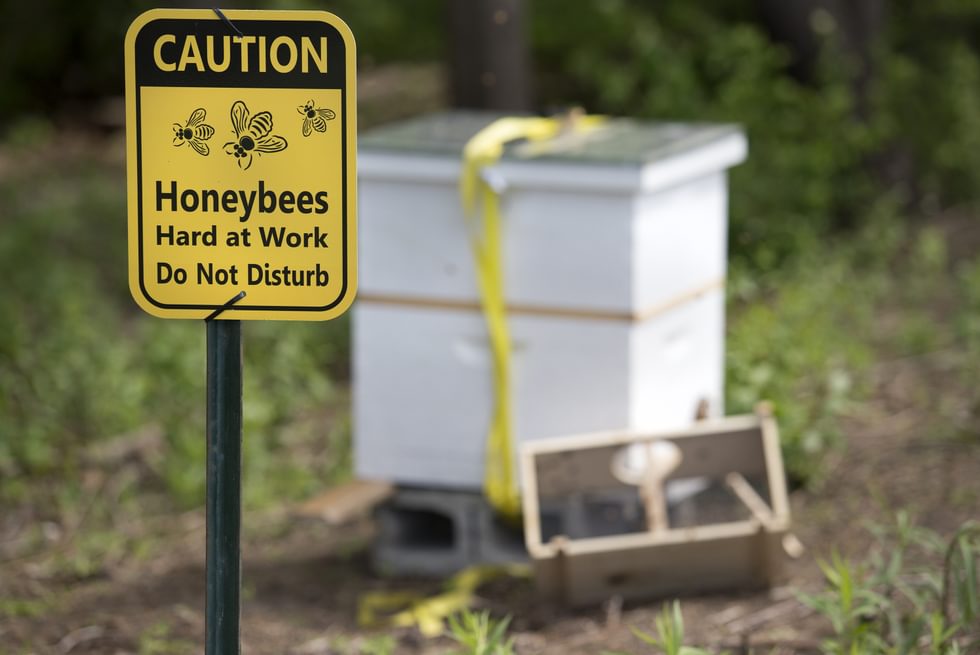Introduction: The Naturalization of Work
From the Series: The Naturalization of Work
From the Series: The Naturalization of Work

The essays in this Theorizing the Contemporary series emerged from a 2016 School for Advanced Research seminar and three panels held at the 2017 annual meeting of the American Anthropological Association. In those venues, participants drew on ethnography in sites as varied as laboratories, nature reserves, kitchens, and plantations to explore how a changing planet affects the nature of labor (Besky and Blanchette, forthcoming). They started from the premise that the exploitation of environments frequently, if not disproportionately, occurs alongside labor exploitation. Outcomes of prior industrial activity—from heated atmospheres to toxic waterways—also affect present-day workers’ experiences and well-being. The contributions to this series extend those conversations to ask: how do we critically confront the multiple forms that the naturalization of work seems to be taking today?
We write amid longstanding debates in the United States on the relationship between nature and labor (e.g., White 1996). On the right, politicians place environmental protection at odds with wage labor, promising (in racially coded language) that ending environmental regulations will return lost manufacturing jobs from the global South. The center-left offers a rejection of the conservative idea that labor and the environment are at absolute odds by proposing visions of a sustainable economy. Projects such as organic farming, clean energy development, or ecotourism promise a return to a more stable planet and economy through hard work and laboring ingenuity. There are, of course, stark and consequential differences between these positions, but one premise they seem to share is that capitalism’s varied crises can be mitigated by putting more and more human bodies to work. It is likely no coincidence that this shared faith emerges at a moment of fretting that technology, from robots to genetically engineered organisms, will inevitably decrease the demand for human labor. Both sides are haunted by the prospect of a surplus population, stripped of its “natural” working identity.
Outside mainstream politics, there is no shortage of contemporary journalism and scholarship that critiques the increasingly precarious conditions of labor, and there are inspiring efforts to realize a world where work is more justly remunerated under more dignified conditions. But there is relatively less critical questioning of the institution of work itself, or of the central role work plays in shaping everyday hierarchies, identities, and—we would argue—environments (but see Ferguson 2015). As the political theorist Kathi Weeks (2011, 7) puts it, “the social role of waged work has been so naturalized as to seem necessary and inevitable, something that might be tinkered with but never escaped.” For Weeks, work occupies an outsized amount of social time and imagination, such that it is difficult to imagine life unfettered by its dictates.
This series channels Weeks’s project in other directions. The phrase “naturalization of work” here indexes more than an unconscious and largely taken-for-granted cultural assumption that human work is inherently necessary and valuable. It also points to a host of material processes whose ends are indeterminate, ranging from the making of working landscapes to the integration of animal lives into capitalist orders. Environmental degradation and mass unemployment have brought into relief the implicit productivism in many popular understandings of human nature, and made it easier to question whether work is a necessary and exclusive property of being human. At the same time, more and more nonhuman entities and landscapes seem to be imbued with a capacity to labor (see Coulter 2015; J. Moore 2015; Battistoni 2017). What, then, are the stakes of seeing work as nature and nature as work? To what extent is acknowledging other species’ work central to transforming (or sustaining) capitalism? How do forms of naturalizing work change—or outright obviate—the tempos, values, and aims of human work as we know it? Finally, what might the denaturalization of work entail, as simultaneously an imaginative and environmental project?
Some of the contributors to this series ask how idioms of labor have become privileged cultural metaphors that people project onto the doings of other beings, in ways that can both illuminate and obscure economic processes (Lorimer; Parreñas; Paxson). Others develop vocabularies of working action that account for the diverse ways that nonhuman beings are enlisted into labor processes, figuring value as an ecological relationship (Barua; Besky; Cousins and Pentecost; Howe; A. Moore; Zhang). Another group of essays looks at what becomes of communities of human workers after nonhuman vital capacities are enlisted to intensify, reduce, or modify laboring actions (Blanchette; DiNovelli-Lang and Hébert; Hetherington; Nading).
By illustrating ways that work is being naturalized and denaturalized, the contributors collectively put labor and nature into novel kinds of relation. Together, these pieces call our attention to worlds of work that are obfuscated when we presume that humans autonomously transform inert materials and imbue them with value. This series does not aspire to develop a single, unified theoretical program for rethinking the nature of labor. Rather, these essays offer us glimpses into unusual, uncomfortable, and potentially transformative combinations of austerity politics and animal domestication, environmental exploitation and performances of stewardship, and productivity and worklessness in play in the world today.
Battistoni, Alyssa. 2017. “Bringing in the Work of Nature: From Natural Capital to Hybrid Labor.” Political Theory 45, no. 1: 5–31.
Besky, Sarah, and Alex Blanchette. Forthcoming. How Nature Works. Santa Fe, N.M.: SAR Press.
Coulter, Kendra. 2015. Animals, Work, and the Promise of Interspecies Solidarity. New York: Palgrave Macmillan.
Ferguson, James. 2015. Give a Man a Fish: Reflections on the New Politics of Distribution. Durham, N.C.: Duke University Press.
Moore, Jason W. 2015. Capitalism in the Web of Life: Ecology and the Accumulation of Capital. New York: Verso.
Weeks, Kathi. 2011. The Problem with Work: Feminism, Marxism, Antiwork Politics, and Postwork Imaginaries. Durham, N.C.: Duke University Press.
White, Richard. 1996. “Are You an Environmentalist or Do You Work for a Living?” In Uncommon Ground: Rethinking the Human Place in Nature, edited by William Cronon, 171–85. New York: W. W. Norton.